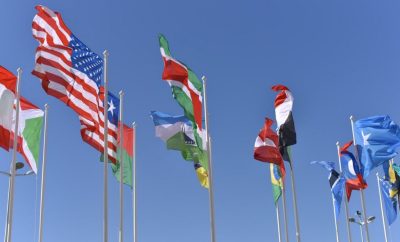
Turkey: Not a team player
A nationalist bent at home and provocations abroad have frayed ties with Europe, and maybe soon the US, too.
Turkey is increasingly becoming the piece of the NATO puzzle that just won’t fit. President Recep Erdoğan’s particular brand of Turkish nationalist populism has earned him criticism from most NATO members at one time or another. Turkey’s plans for European Union membership seem increasingly like a distant memory, as criticism of Ankara’s activities from its European allies over a range of issues has been relatively constant.
In 2017, for instance, the Dutch refused permission for the Turkish foreign minister to land in the country and expelled a Turkish minister, as both were seeking to address rallies for the Turkish referendum on expanding presidential powers. Austria has closed down a number of Turkish-funded mosques and expelled several Turkish imams who it claims were importing Turkish nationalist ideals.
But it is in the security arena that Erdogan’s policy moves have not only put him at odds with his other NATO partners, but also raised the prospects of a much more serious rift. There was last year’s purchase of the Russian-built S-400 anti-aircraft missile system that resulted in the embargo of sales of the next-generation F-35 fighter. Washington has since said the jets earmarked for Turkey will instead be bought by the US Air Force. And last year the EU also placed a limit on arms sales to Turkey after Ankara’s military incursion into northern Syria.
Συνέχεια ανάγνωσης εδώ
Πηγή: lowyinstitute.org




